
Welcome to our Marvel movie countdown to Avengers: Infinity War.
Between 1st January and the film's release on 26th April we're recapping one Marvel blockbuster a week, which means you will be fully up to speed on the Marvel Cinematic Universe (MCU) by the time Infinity War arrives on your screens.
We're continuing this week with the movie that sees the Avengers turn against one another – Captain America: Civil War...
The story
Following the destruction of Sokovia during the climax of Avengers: Age of Ultron, the superhero team find themselves divided along ideological lines. In particular, the tension between Tony Stark/Iron Man (Robert Downey Jr.) and Steve Rogers/Captain America (Chris Evans) is reaching boiling point. One year after the events in Sokovia, an incident involving the Avengers results in the accidental death of humanitarian workers from the kingdom of Wakanda. This hastens the creation of the Sokovia Accords, whereby the UN can monitor and control the actions of the team. Tony supports the motion whereas Steve is against it.
When King T'Chaka of Wakanda (John Kani) is blown up in a UN bomb attack in Vienna, his son T'Challa (Chadwick Boseman) swears vengeance. With the Avengers split into Team Iron Man and Team Cap, it soon becomes clear the mysterious Helmut Zemo (Daniel Bruhl) is personally orchestrating events behind the scenes, with dire consequences for our heroes...
The background
Written by Kingsman creator Mark Millar, the seven-issue 'Civil War' storyline (published in 2006 and 2007) takes as its basis the Superhero Registration Act, a piece of US government legislation that forces anyone with superhuman abilities to reveal their identities and agree to act as a police force for the authorities. It ends up pitting Captain America and Iron Man against each other. The X-Men meanwhile (unable to feature in the subsequent MCU movie adaptation due to ownership reasons), remain on neutral ground.
The commercially successful series was chosen as the basis for the third Captain America movie, to be written by Christopher Markus and Stephen McFeely. Their script for 2014's Captain America: The Winter Soldier had been acclaimed for its incorporation of surveillance and espionage themes akin to the classic conspiracy cinema of the 1970s. The involvement of The Winter Soldier directors Joe and Anthony Russo meanwhile was confirmed even earlier – in fact, they were signed to Civil War three months before The Winter Soldier was even released in March 2014, owing to the rave responses from Marvel bosses during a test screening.
One reason why the Civil War storyline was chosen was it allowed the inclusion of Iron Man. By this stage within the MCU, tensions between him and Captain America were already spilling over (made explicit during the wood-chopping discussion in Age of Ultron), and it allowed Downey Jr. to take the character to darker areas. This is especially notable during the climax where a reveal about Tony's parents has shocking ramifications for the two former allies.
Marvel Studios President Kevin Feige announced in October 2014 that Civil War would kick off Phase Three of the MCU. Executive producer Nate Moore stated that Marvel now wanted to explore the "world's reaction" to the exploits of the Avengers. To that end, the standalone Black Panther movie was announced in October 2014 with Chadwick Boseman confirmed to be making his debut appearance as Black Panther/T'Challa.
Principal photography spanned April to August 2015, with the movie scheduled for release in March 2016. The film was shot in a variety of different locations across the world including Germany, Iceland, Puerto Rico and Norway. The movie was the first ever to shoot with IMAX's digital 2D camera, primarily during the pivotal airport battle between Team Iron Man and Team Cap. And then there was the addition of a certain key character midway through filming...
In May 2015, the Russos held a screen test in Atlanta for a new Peter Parker, with the actors playing against Downey Jr. and Evans in order to test their chemistry. This would ultimately determine what side he'd be playing for. At the end of June, British rising star Tom Holland, best known for playing Billy Elliot on stage and for movies like tsunami drama The Impossible, was cast as the new Spider-Man. His solo film was also confirmed, as was his loyalty to Team Iron Man, but at the time, due to contractual complications with Sony (who continue to have ownership of the character), Marvel couldn't immediately confirm the character's involvement in Civil War. Eventually however, a deal was struck between the Disney-owned properties and Sony, allowing Spidey to enter the MCU for the first time.
Standout performance
It has to be Tom Holland. Closer in age to the Peter from the comics (a deliberate casting decision on the part of the Russos), the actor immediately differentiated his portrayal from earlier Spider-Men Tobey Maguire and Andrew Garfield, skewing younger, more naive and more puppyish in his enthusiasm. It also allowed for excellent chemistry with Downey Jr., who in the movie pushes Stark into the role of affectionate mentor as he gifts Peter his first ever suit to use in the central airport battle.
Standout scene
After Zemo's insidious plan is revealed at the end of the movie (his family was killed in Sokovia, leading him on a crusade to destroy the Avengers), one of the most upsetting and dramatic moments in the MCU occurs. After discovering that his parents were killed by the brainwashed Bucky Barnes (Sebastian Stan) in his Winter Soldier phase, Stark attempts to kill him. However Rogers, remaining loyal to his friend, steps in, prompting a three-way fight to the (near) death. It's a dark, shocking culmination of all the tension that's built up in the preceding films, and the pivotal image of the Captain's abandoned shield embedded in Stark's armour resonates with troubling questions about loyalty, friendship and accountability.
The soundtrack
Following the industrial tones heard in The Winter Soldier, composer Henry Jackman was compelled to up the orchestral force in the new Captain America movie. After all, we're presented with the monumental sight of the Avengers tearing themselves apart, so it makes sense to resurrect Alan Silvestri's sense of symphonic might from The First Avenger. There are a multitude of different themes in the score, including an overraching operatic piece for the Civil War itself (which reaches its climax during the aforementioned fight), plus musical motifs for Zemo, Spider-Man and Black Panther.
Stan Lee cameo
Post credits scene
Did you know?
- Remember the Empire Strikes Back "old movie" gag during the main battle sequence? It turns out (as of 2017 at least) that Tom Holland hasn't actually seen what's considered to be the best Star Wars movie ever.
- This is Stan Lee's second cameo as a deliveryman – in 2005's Fantastic Four he plays Willie Lumpkin, a USPS mailman who delivers Reed Richards' ('Mr. Fantastic') mail.
- Logan Lerman, Dylan O'Brien, and Asa Butterfield were among those considered for the role of Peter Parker.
- Although Loki doesn't appear in the movie, actor Tom Hiddleston confessed that the moment when Rogers grabs a helicopter to prevent it flying away is one of his favourite Marvel moments: "I mean Chris Evans does a bicep curl, with a helicopter! If you don't love that, we can't be friends."
General observations
- Although Tom Holland wore a Spider-Man suit on set, the final result we see on screen was entirely done with CGI.
- Spidey wasn't the only character to get such treatment – Black Panther's costume was also extensively touched up in post-production by the visual effects artists at Industrial Light and Magic.
- Tony Stark remarks on the attractiveness of Peter's Aunt May (Marisa Tomei) – these two actors had shared the screen 22 years earlier in rom-com Only You, and two years prior to that in Charlie Chaplin biopic Chaplin.
What the critics said
- "The most mature and substantive picture to have yet emerged from the Marvel Cinematic Universe... This chronicle of an epic clash between two equally noble factions, led by Captain America and Iron Man, proves as remarkable for its dramatic coherence and thematic unity as for its dizzyingly inventive action sequences; viewers who have grown weary of seeing cities blow up ad nauseam will scarcely believe their luck at the relative restraint and ingenuity on display." – Justin Chang, Variety
- "Tear away the powers, abilities and egos, though, and the third Captain America movie is at its core a deep exploration of friendship and family and what sacrifices should be made to hold onto both." – Brian Truitt, USA Today
- "Kudos to the Russo brothers, Joe and Anthony, for directing the hostilities for maximum impact and without neglecting character. Their thundering epic is also smart, snappy, politically savvy and blessedly fast on its feet, a neat trick pulled off by screenwriters Christopher Markus and Stephen McFeely, who have been with the series since 2011's Captain America: The First Avenger." – Peter Travers, Rolling Stone
- "Captain America: Civil War is the best Marvel Studios movie yet. There, we said it. First, and most importantly, it does what the best Marvel films do: juggling multiple characters so each is allowed its moment in a story that pushes forward the series’ overall continuity, while also forming and concluding its own cogent plot." – Dan Jolin, Empire
Next time...
Doctor Strange
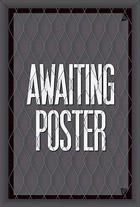
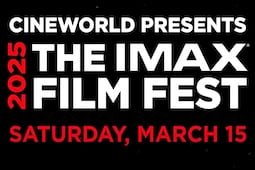
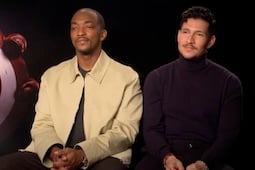

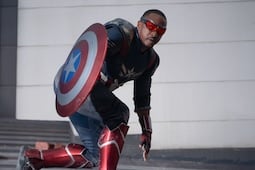
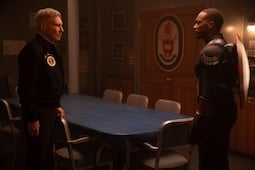
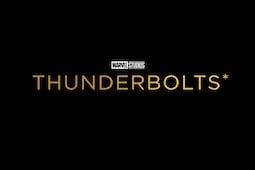
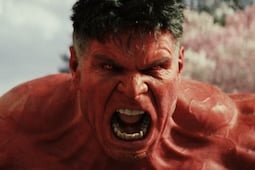
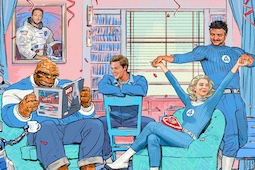
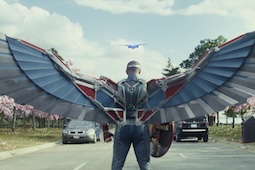




.jpg)
.png)






